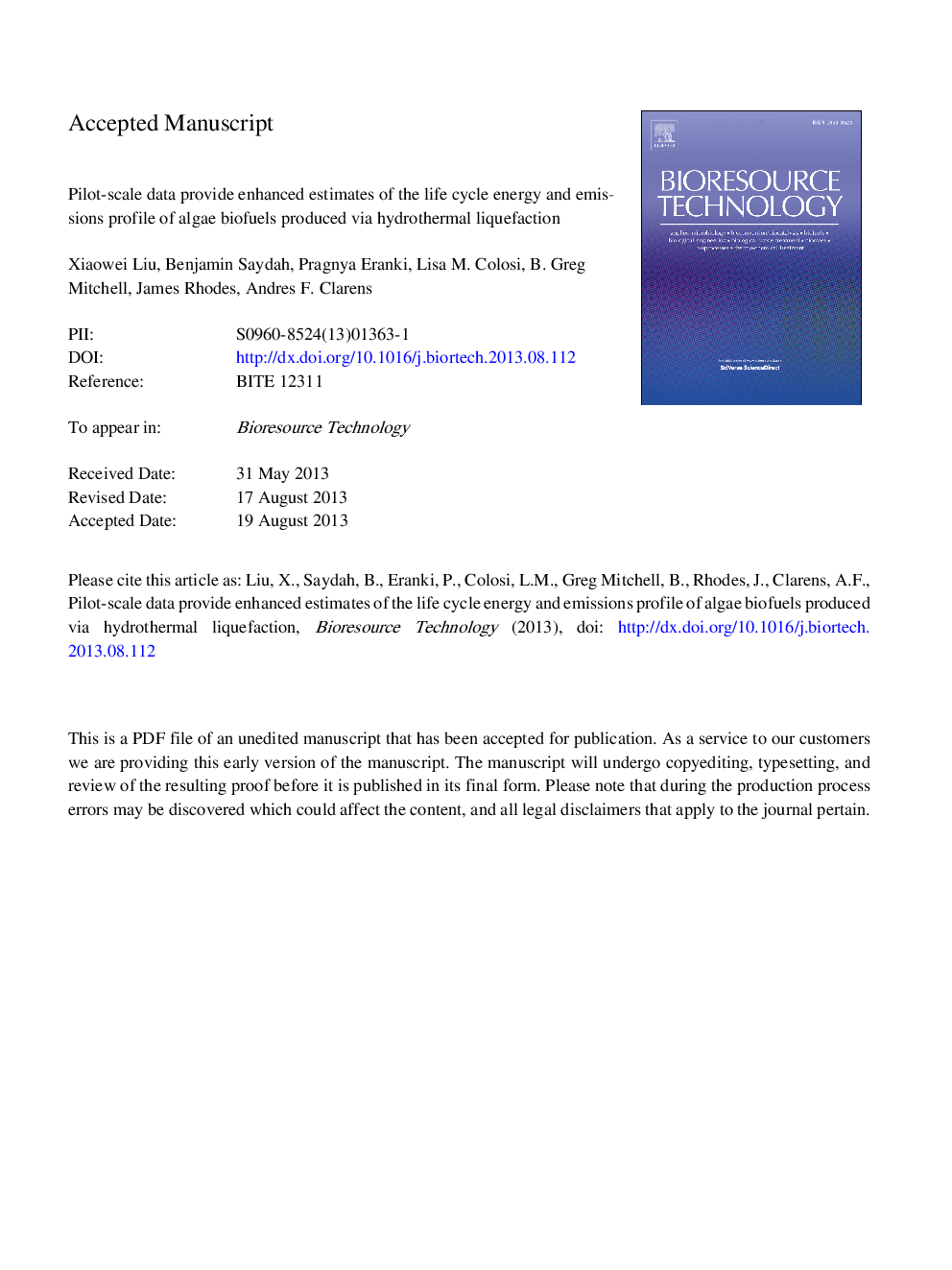| Article ID | Journal | Published Year | Pages | File Type |
|---|---|---|---|---|
| 7080015 | Bioresource Technology | 2013 | 33 Pages |
Abstract
Life cycle assessment (LCA) has been used widely to estimate the environmental implications of deploying algae-to-energy systems even though no full-scale facilities have yet to be built. Here, data from a pilot-scale facility using hydrothermal liquefaction (HTL) is used to estimate the life cycle profiles at full scale. Three scenarios (lab-, pilot-, and full-scale) were defined to understand how development in the industry could impact its life cycle burdens. HTL-derived algae fuels were found to have lower greenhouse gas (GHG) emissions than petroleum fuels. Algae-derived gasoline had significantly lower GHG emissions than corn ethanol. Most algae-based fuels have an energy return on investment between 1 and 3, which is lower than petroleum biofuels. Sensitivity analyses reveal several areas in which improvements by algae bioenergy companies (e.g., biocrude yields, nutrient recycle) and by supporting industries (e.g., CO2 supply chains) could reduce the burdens of the industry.
Related Topics
Physical Sciences and Engineering
Chemical Engineering
Process Chemistry and Technology
Authors
Xiaowei Liu, Benjamin Saydah, Pragnya Eranki, Lisa M. Colosi, B. Greg Mitchell, James Rhodes, Andres F. Clarens,
